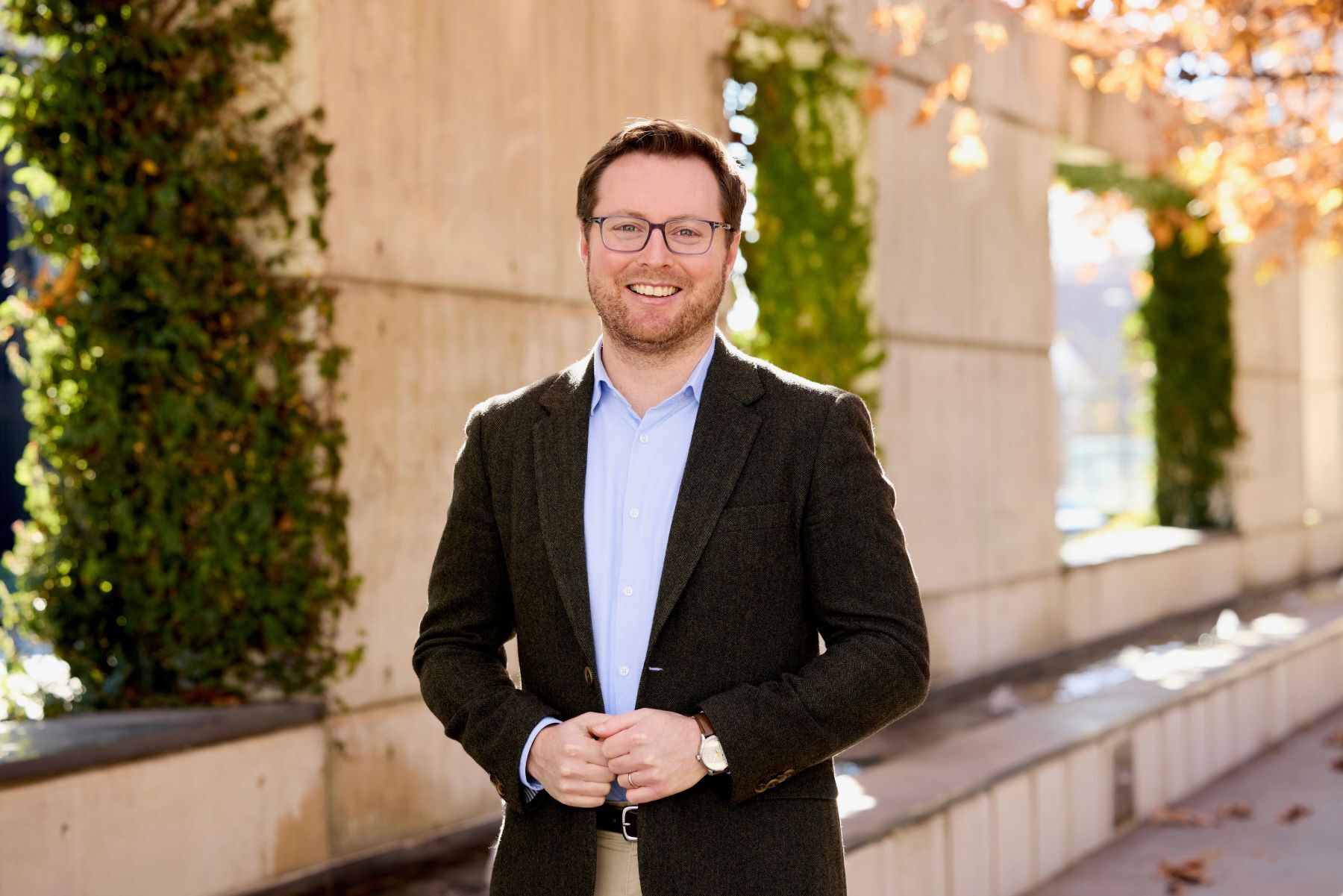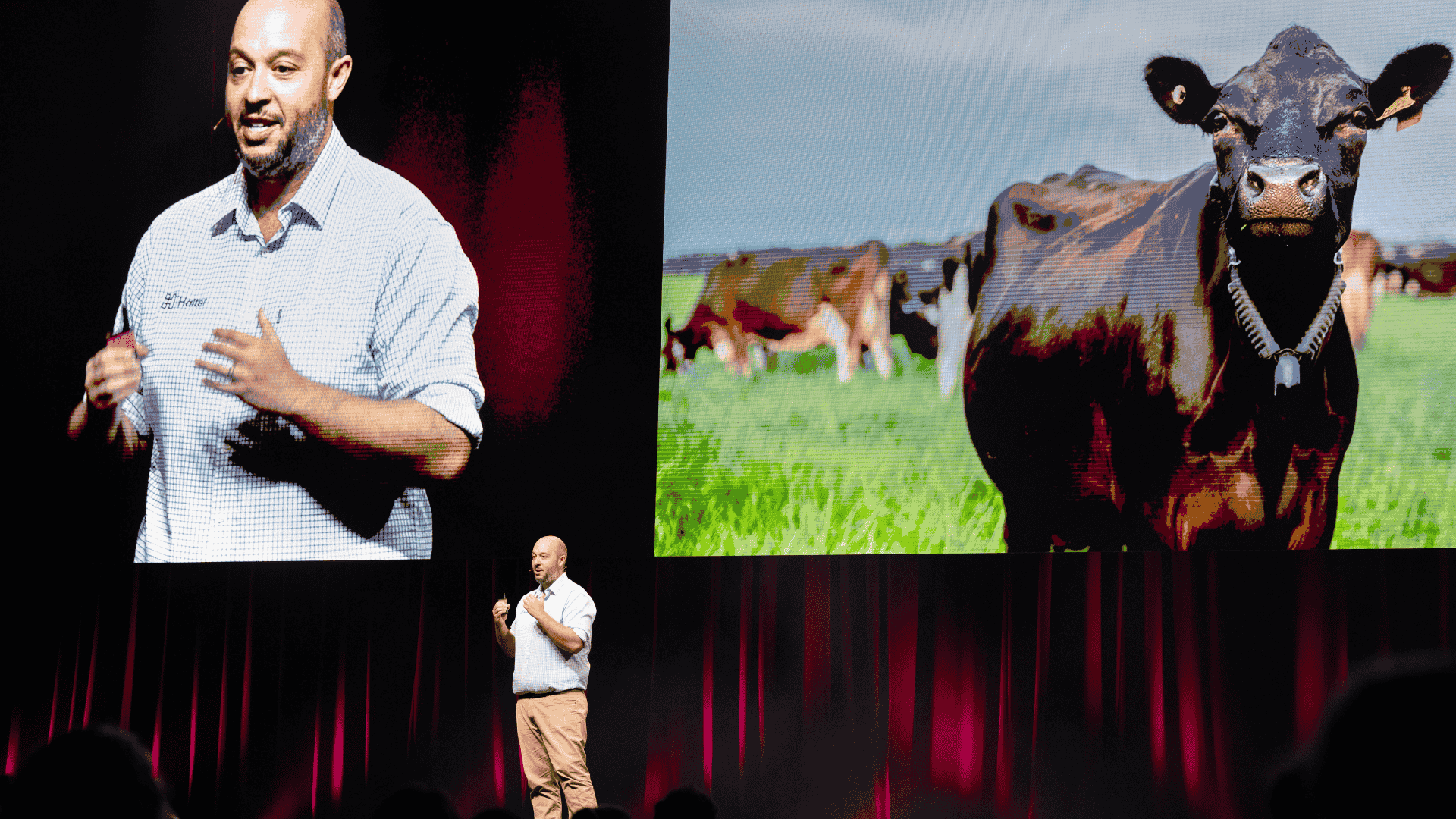Virtual fencing gets green light at ag tech event
Virtual fencing has been given the green light in Victoria, with Halter’s P5 electronic collar system on Wednesday becoming the first technology...

There’s a new face at the helm of the Victorian Farmers Federation (VFF), with Charlie Thomas stepping into the role of Chief Executive Officer this week.
Mr Thomas grew up on a farm at Condobolin, NSW, and while farming wasn’t his chosen path, it keeps circling back into his life.
He moved to Sydney to study law and after working in that field for five years, decided to take a different direction.
"I wanted something a little bit more creative, I suppose, just a bit more fast paced. And I certainly found that in advocacy and agriculture," he said.
That move into advocacy began with NSW Farmers, where he worked across livestock and land use conflict issues, including coal seam gas development.
He said it gave him his first real taste of what effective advocacy could achieve.
“We ran some really interesting campaigns back then, including unusual bedfellows with the environment movement and farmers which really gave me my passion for advocacy, just seeing the scale of what you can achieve."
Mr Thomas finds bringing people together around a common cause "hugely exciting" and says that this experience in land use conflict would be beneficial as farmers are up against planning and consultation challenges across the state.
"The name of the challenges have changed, whether it's transmission lines or mineral sands mining or developments, whatever it might be, but the the issues are fundamentally the same," he said.
"It's about ensuring that farmland is appropriately valued in planning decisions, that the farmers' voices are heard in those processes.
"So making sure we get those processes and frameworks right before these things go further than they already have."
Mr Thomas briefly worked outside agriculture in the property sector, however, he said it didn’t bring the same sense of purpose.
“It was a really enriching experience, but not one that I got as much joy out of as I did in agricultural advocacy,” he said.
Mr Thomas, who comes to the state farming organisation after 10 years at the National Farmers’ Federation (NFF), said his time at the Canberra-based peak body had been defined by transformation. During his tenure, the organisation diversified its income sources, significantly expanded its footprint, and nearly quadrupled in size.
“It was quite an anaemic organisation,” he said.
"To be able to come in with the organisation in quite a different state to what I ultimately left it is something I'm hugely proud of."
It's this transformation that he believes got him the role at the VFF, which has had a tumultuous few years of infighting, court cases, financial distress and a sharp decline in members.
As he takes the reins at the VFF, Mr Thomas said his focus is firmly on getting back to basics – listening to members and focusing on the issues that matter most to them.
"I want to get out of the trap of talking about the VFF and talk more about Victorian farmers and their concerns and their priorities, and talking up Victorian agriculture, because that's the job, not to be sitting here talking about ourselves."
He’s committed to a regional tour in the coming weeks, including attending the VFF Livestock Conference in Bendigo next week.
"I want to hear from members about their priorities and what they think the organisation is doing well, what it could be doing better and how they want to be involved in the organisation going forward," he said.
"I've got a few of my own ideas about what we need to prioritise and how we need to do things differently, but I want to be consultative and just make sure that I'm discussing those openly with members and getting their ideas and their feedback before we do any anything too radical."
That grassroots work will underpin a broader push to reframe how Victorian agriculture is understood and valued – particularly by policymakers.
“Victoria produces nearly 24% of the nation’s agricultural output from just 3-4% of the farmland,” Mr Thomas said.
"That productivity just so far surpasses anything else that you see around Australia.
“It’s the only state with five commodities worth more than $2 billion each, and we’ve got 40% of the country’s food manufacturing jobs based here. That’s something every government aspires to.”
He also points to leadership in agricultural education, with Victoria accounting for more than half of the VET enrolments in advanced agriculture subjects.
"We need to start communicating that Victoria is really leading the future of farming in Australia," he said.
His challenge now is to make sure that message - that agriculture is a growth driver for Victoria that should be supported and invested in - is cutting through when dealing with Spring Street.

Virtual fencing has been given the green light in Victoria, with Halter’s P5 electronic collar system on Wednesday becoming the first technology...
.png)
What if the real issue with “kids not stepping up” isn’t them at all?In this episode, Ben Law sits down again with high-performance advisor Chris...
.png)
As Victorians begin the long recovery following devastating bushfires which burnt more than 400,000 hectares, a pair of contract...